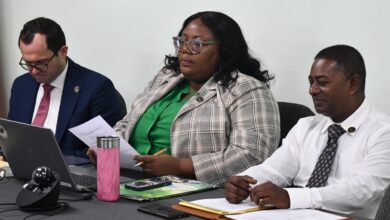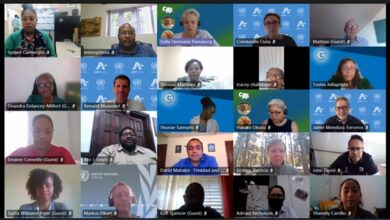The CARICOM Secretariat co-facilitated a workshop in Grenada on 12 March that was aimed at helping to create legal frameworks and institutional guidelines to implement the Convention on International Trade in Endangered Species (CITES) of Wild Fauna and Flora. The CITES of Wild Fauna and Flora programme aims to safeguard endangered animals and plants from harmful international trade, thus ensuring their survival.
The CITES Secretariat partnered with the CARICOM Secretariat to facilitate the workshop while the Grenada Ministry of Agriculture and Lands, Forestry and Marine Resources played host. The sessions focused on boosting the capacity and technical expertise of National CITES Authorities.
The primary objective of CITES was to ensure Grenada’s full compliance with the convention, with the CARICOM Secretariat aiming to strengthen the capacity to effectively implement its provisions.
Grenada, bound by the Convention’s reporting obligations, has been unable to export Queen Conch since 2016 due to a lapse in reporting circa 2013. With the support from the CITES Secretariat and CARICOM Secretariat, the Ministry sought to determine the necessary steps to lift this ban, including legislative measures, reporting procedures, and institutional arrangements.
Queen Conch, listed under Appendix II of the CITES Convention, necessitates a CITES certificate for trade. However, before such certificates are issued, there must be evidence that trade will not harm the species’ health. Legislative and administrative processes, including stock assessments and non-detrimental findings, are prerequisites for lifting the ban.
Progress has already been made to meet the requirements. The Ministry completed a stock assessment in 2023, indicating healthy Conch populations, and initiated certain administrative procedures, suggesting advancement toward resuming exports by the year’s end, pending completion of all necessary steps.
Various stakeholders from key sectors such as trade, law enforcement, forestry, customs, fisheries, legal affairs, ports authority, exporters, and processing plants attended the workshop, and learned of the convention’s requirements and their roles in its effective implementation.




